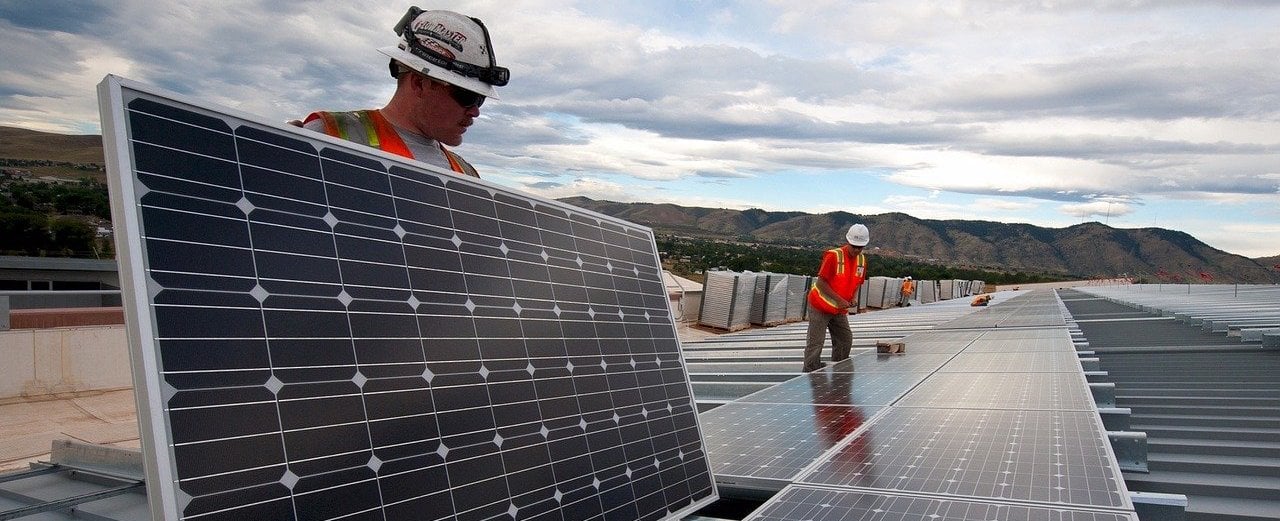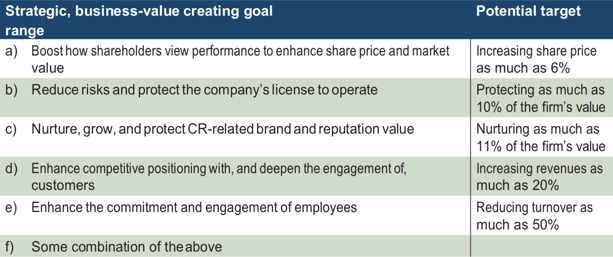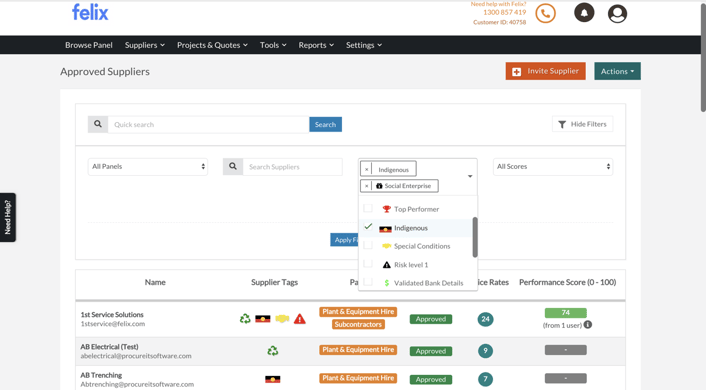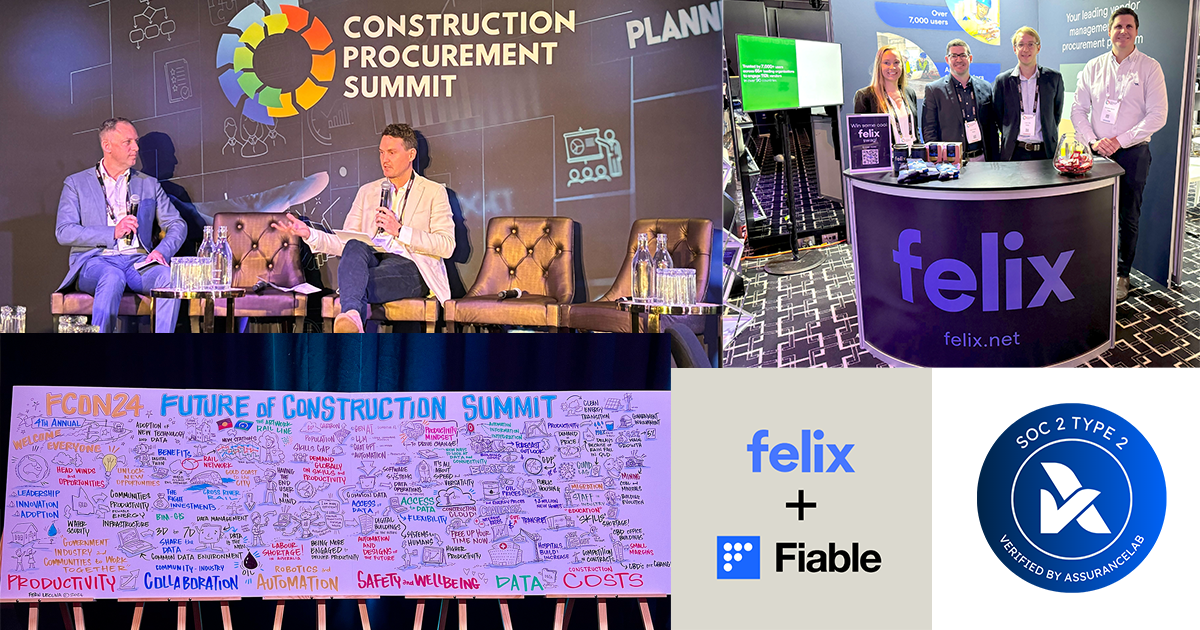Social procurement is much more than hitting ESG and CSR goals

Are you leveraging social enterprises in your tenders? Because your competitors are. There's a growing expectation for contractors to include social enterprises when bidding and delivering commercial and major government projects, yet navigating social procurement remains an afterthought for many.
Understanding how social procurement can work for your organisation is crucial to ensure survival in today's complex and changing construction environment. It takes canvassing the current market landscape and tools available.
Why is this so important?
Compliance
The Federal and local governments around Australia have expanded the focus of “value” to not just cover financial aspects, but social and environmental benefits as well. It is expected that agencies actively search for and procure through vendors that can help deliver those social targets.
The Victorian Government was the pioneer in formalising social procurement requirements back in 2018. We have touched on the state’s Social Procurement Framework in another post.
Meanwhile, Queensland updated its Procurement Policy to incorporate social procurement:
- To help close the employment gap, there is a commitment to “increase procurement with Aboriginal and Torres Strait Islander businesses to 3% of addressable spend by 2022”
- The requirement to “invite regional and Queensland suppliers to quote or tender can be met by asking local social enterprises to tender for work”
- There is also a commitment to “increase spend with genuine, quality social enterprises”
A similar approach is seen in NSW as well, where there are various requirements and recommendations to meet social and sustainability goals.
 Snapshot of sustainable procurement objectives and corresponding actions. Source: NSW Government
Snapshot of sustainable procurement objectives and corresponding actions. Source: NSW Government
Social value
Using corporate power to influence social outcomes means your company will help aid the number of missed placed youth and long-term unemployed jobseekers in disadvantaged communities. Responsible procurement can help stimulate the growth of the $360 billion construction industry. Your procurement activities will help drive social change and deter the stigma among these businesses and talent.
Social Traders estimated that “for every $100,000 spent by business and government buyers on social procurement, 1.5 jobs are created for those suffering or at risk of disadvantage. To give this some perspective, if as little as 3% of the budgeted infrastructure spending goes toward buying from social enterprise, as many as 22,000 jobs for disadvantaged Australians could be created.”
Business value
Social procurement, which can be one of your Corporate Responsibility (CR) initiatives, can also determine your reputation in the market.
A report that summarised findings from over 300 leading research studies listed various business ROI and benefits organisations can track for their CR activities:

Source: Project ROI
Let’s unpack this a bit further.
How might including social enterprises in your procurement decisions have an impact on your financial performance? Essentially, it will enhance your positioning in the competitive landscape. Contractors that have a good track record of compliance and meeting targets in their project delivery are more appealing to the government. The more you include Aboriginal/local/social enterprises in your tender submissions, the more work you will receive from the government.
In terms of risk reduction, you can look at it from the angle of protecting the company’s license to operate. Or from the operational perspective, diversifying your supplier pool with social benefit suppliers can reduce risks from supplier over-dependence or supplier unavailability.
Moreover, in terms of human resources, organisations can reduce turnover, increase engagement and productivity by engaging the next generation workforce. “Millennials seek purpose-aligned work and expect their employers to behave ethically and sustainably.” So, if you execute sustainable procurement well and your employees feel they are making a difference, it can translate into great ROI.
How do we help with social procurement practices?
Our team at Felix has identified that the growing social procurement trend requires technology to bridge the gap between organisations and social enterprises. That's why we built our platform that makes the process of reviewing and finding vendors straightforward.
Before Felix, our clients found that they were struggling to find an efficient way of recording accurate information about their supply chain. Procurement teams would hand over contracts to suppliers and there would be no transparent means to indicate if the contracts were going to subcontractors that were a social or Indigenous-owned enterprise. Social procurement communication and data would often be buried in spreadsheets, Dropbox links, emails, or completely ignored.
To help, we've introduced Vendor Tags along with our existing prequalification tool. The Vendor Tags provide an easy solution to the once arduous task of categorising organisations with unique business attributes. Once stored in a central database accessible by project teams on a permission basis, this up-to-date information can then be used to manage vendor relationships effectively, or to run sourcing events.

Our clients and vendors can showcase their engagement with social enterprises. For example, you can quickly identify and engage vendors that you have assigned with the Aboriginal, Torres Strait Islander and Social Enterprise tags. You'll become a more attractive tendering party, and gain a competitive advantage over bidders that are still grappling with social procurement. It also allows you to expand the types of tenders that you bid on, whereas previously you may have ruled yourself out from projects with such high social content criteria.
To see this tool in action, or get a free evaluation of how your social procurement activities can be streamlined, get a demo today.
This article was originally published in late 2018 and has been updated with new information.

Related Articles

Project procurement vs. Category management for principal contractors
Procurement and supply chain management can be incredibly complex and critical for project success, especially in construction – where there are layers of subcontracting parties.

Driving social procurement: Key insights from our recent webinar
Recently, I had the pleasure of hosting a webinar titled "Driving social procurement: Practical insights and applications" with guest speaker Lea Schöpping from Procurement Co. This webinar was designed to equip procurement professionals, sustainability leads, supply chain managers, and anyone looking to integrate social responsibility into their business strategy with the knowledge and tools to drive social procurement within their organisations.
The session provided benchmarking insights on current social procurement practices used by both private and government organisations, walked through different project phases and key deliverables of a successful social procurement project, and offered actionable takeaways including the benefits of implementing a social procurement guideline and toolkit.

Felix in 2024: Advancing procurement, sustainability, and security
As we review 2024, it's clear that the year brought significant developments for Felix and the industry. Through strategic initiatives, technological improvements, and a focus on key challenges, we've made meaningful progress in several critical areas.
Let's stay in touch
Get the monthly dose of supply chain, procurement and technology insights with the Felix newsletter.



